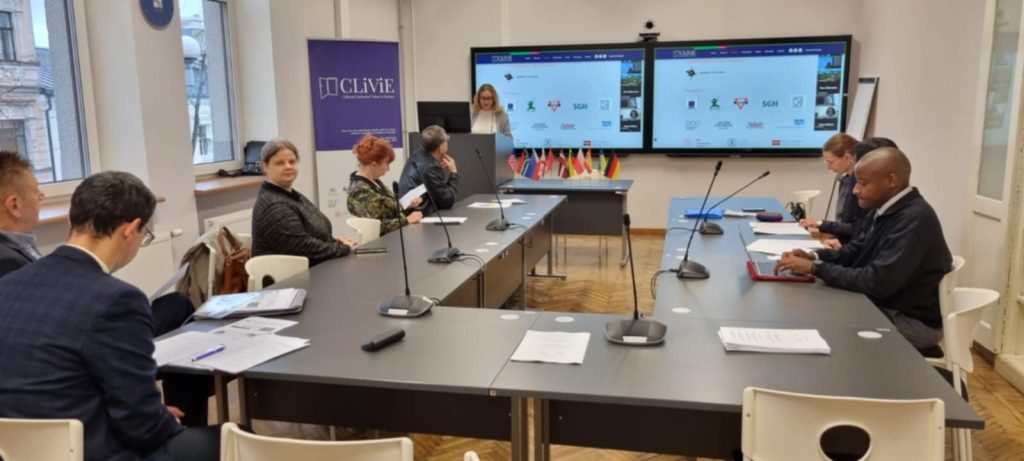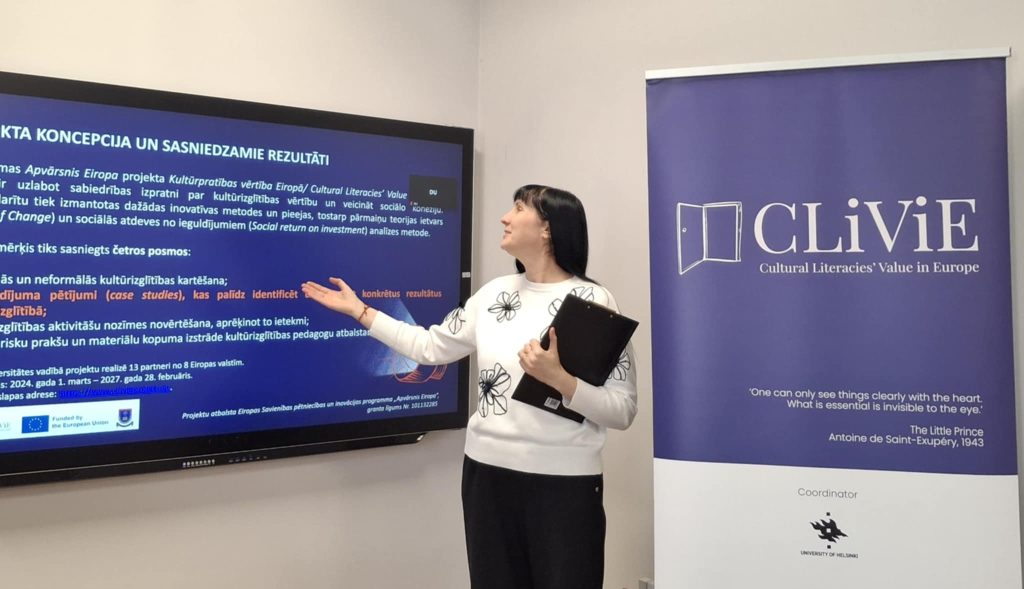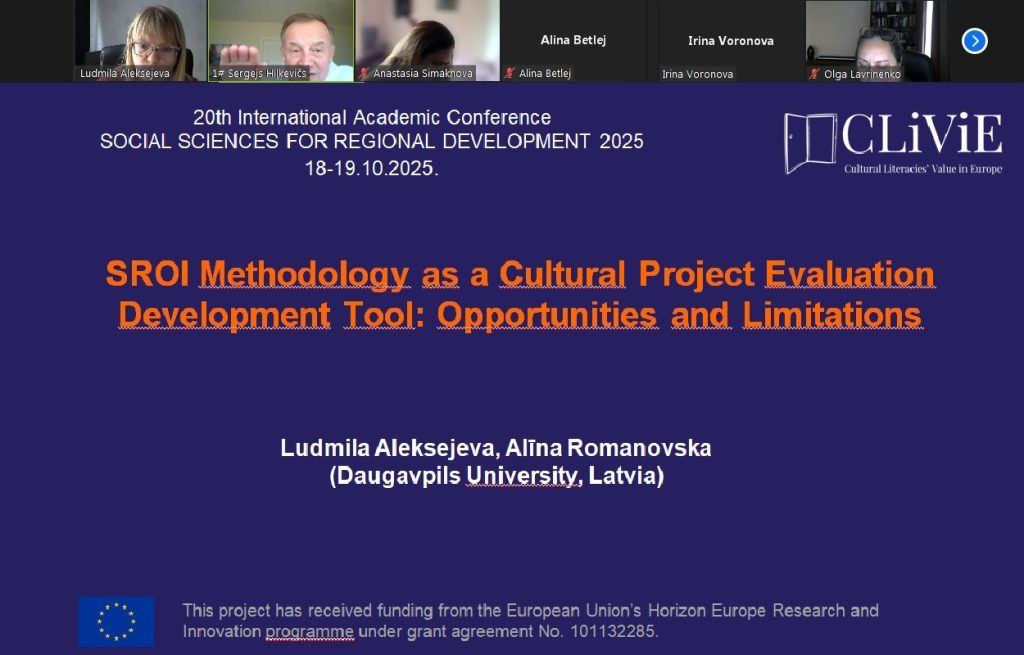On October 17–18, 2025, Daugavpils University hosted the 20th International Scientific Conference “Social Sciences for Regional Development”, organized by the DU Institute of Humanities and Social Sciences. This time, the conference brought together around 120 participants from twenty-two higher education establishments and other research institutions around the world.
The conference plenary session was opened by Professor Anita Stašulāne, a researcher of the Horizon Europe project “Cultural Literacies’ Value in Europe (CLiViE)”, with a presentation titled “Practising, Evaluating, and Valuing Cultural Literacy: The CLiViE Project’s Contribution to Social Cohesion”. In her presentation, prepared in collaboration with Associate Professor Alīna Romanovska and Assistant Professor Irina Presņakova, A. Stašulāne illustrated how collaboratively created, arts-based practices can foster empathy, inclusion, and cultural literacy in non-formal learning environments. The research results testify to the value of non-formal cultural education in promoting social cohesion. By addressing methodological challenges in evaluating intangible outcomes, the study provides insights for educators, cultural institutions, and policymakers wishing to use the potential of arts and culture in divided communities.
In the conference section “Sociology. Social Psychology,” leading researcher Oksana Kovzele delivered a presentation titled “Experience of Implementing the Case Study ‘Learn from Ancestors to be Open and Self-Confident in the Future!” in the Formal Education Environment”. O. Kovzele emphasized that the need for this case study was determined by the current economic and geopolitical situation, as well as the challenges facing today’s education system. Responding to experts’ calls to apply a holistic approach in schools – one that includes the development of the learners’ mind, body, heart, and spirit – the idea arose to organize a series of creative craft workshops in one of Daugavpils city’s secondary schools, in a class with a multiethnic composition. The series of workshops was positively evaluated by both the students and the stakeholders. Traditional Latvian craftsmanship was recognized as a universal language for learners’ socialization and cultural education, while the format of creative craft workshops (including sessions on traditional cooking, sound instruments, soap, bracelets, and face mask making) was appreciated as an effective way to teach Latvian cultural values and traditions to children from non-Latvian backgrounds.
Continuing the discussion on the implementation and initial results of the project “Cultural Literacies’ Value in Europe”, Associate Professor Ludmila Aleksejeva presented a paper titled “SROI Methodology as a Cultural Project Evaluation Development Tool: Opportunities and Limitations” in the conference working group “Regional Economy, Finance, and Credit”. The study was prepared in collaboration with Associate Professor Alīna Romanovska. The presentation addressed the issue of assessing the socio-economic impact of cultural literacy – an evaluation that is rarely carried out in practice, as the resulting benefits are difficult to quantify. Nevertheless, such impact plays a crucial role in strengthening social well-being, participation, and cohesion. As one of potential solutions, the SROI (Social Return on Investment) methodology was analysed. This approach enables the quantitative evaluation of non-economic benefits such as community cohesion, the quality of cultural participation, and participants’ personal growth. The presentation outlined both the advantages and limitations of this methodology, drawing on the process and outcomes of mini-projects implemented within the CLiViE framework.
More information:
Professor and leading researcher at IHSS Anita Stašulāne
email: anita.stasulane@du.lv
Associate Professor at FHSS Ludmila Aleksejeva
email: ludmila.aleksejeva@du.lv
Leading researcher at IHSS Oksana Kovzele
email: oksana.kovzele@du.lv



The project has received funding from the European Union’s “Horizon Europe” Research and Innovation programme under the grant agreement No. 101132285.

